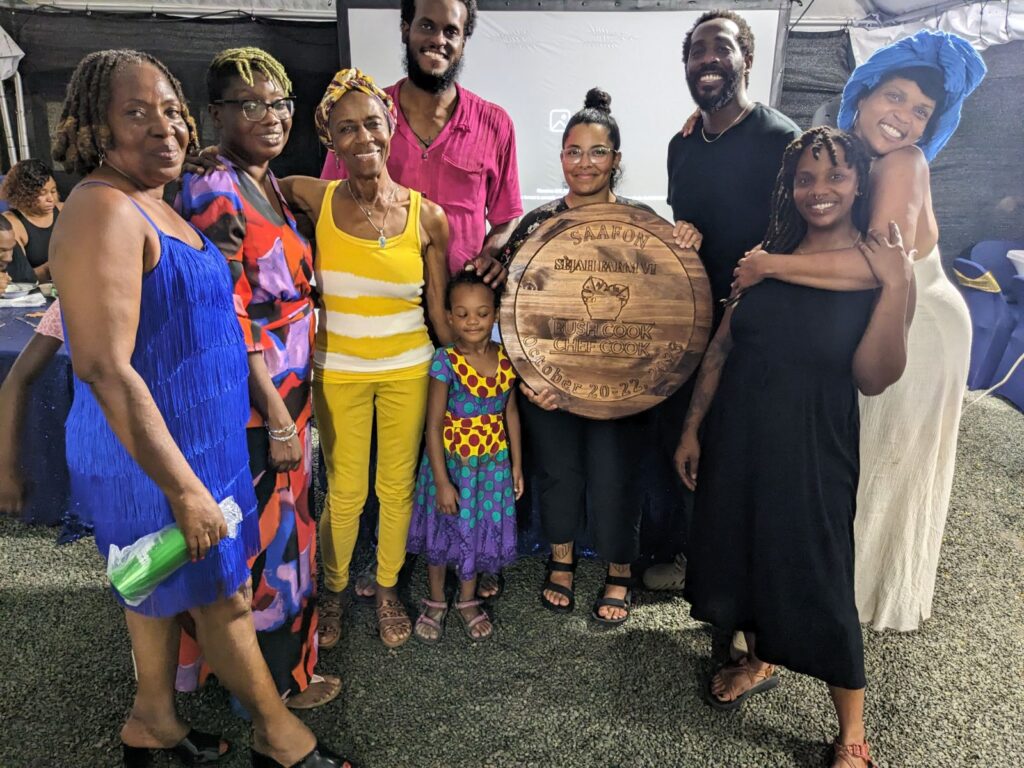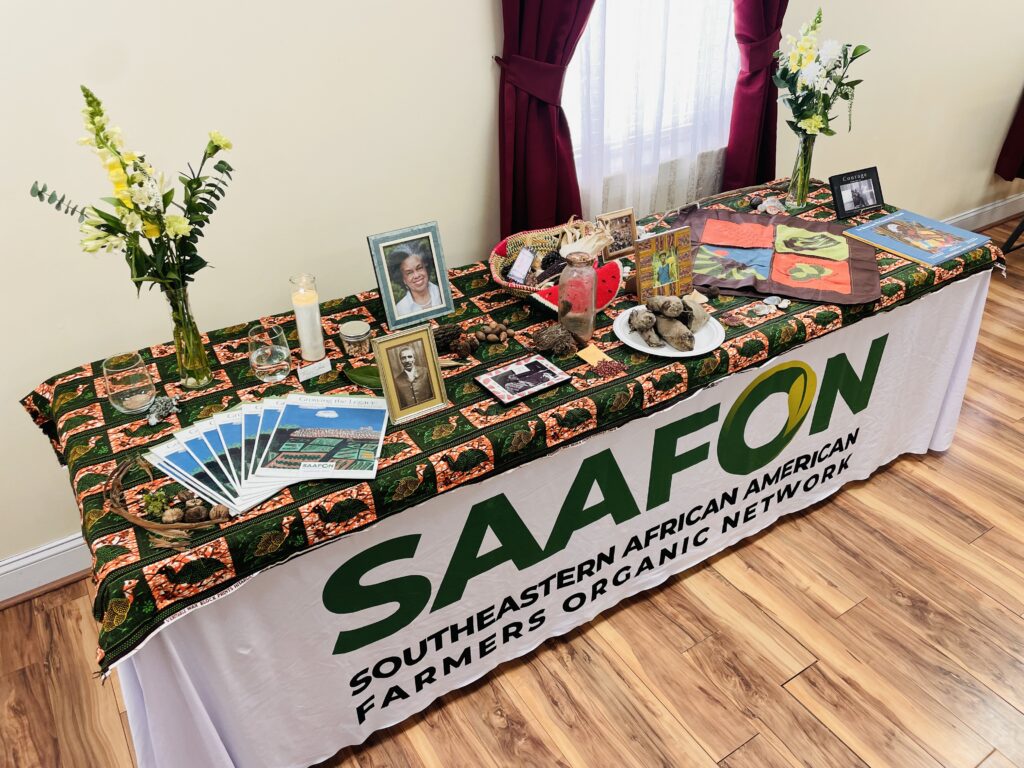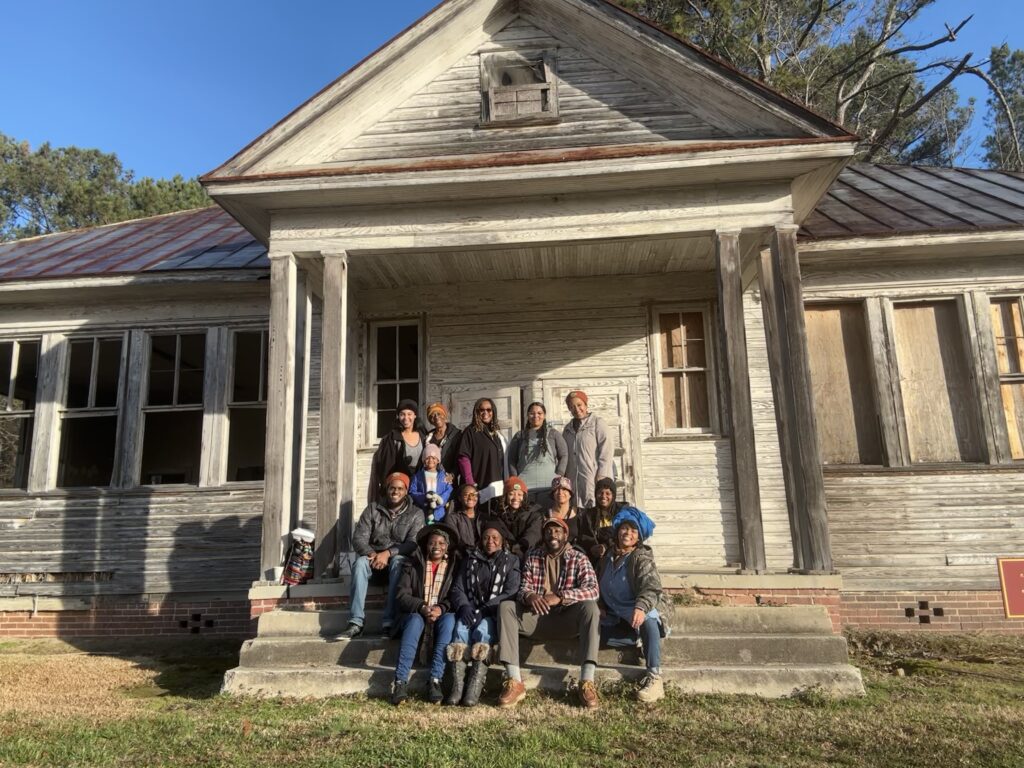Date
Author
SAAFON’s Associate Director of Membership, Shelby Mandonado and Jael Paul, U.S. Virgin Islands Coordinator.
In mid-February, Virgin Islands Good Food Coalition held its inaugural Island Food Systems Summit at the University of the Virgin Islands, drawing farmers, farmer advocates, policymakers, and organizations representing the food system of the Caribbean islands and beyond. SAAFON staff members were pleased to attend and sponsor this crucial event, the first of its kind, connecting SAAFON membership and partner organizations on St. Croix.
The 3-day event featured a variety of ways for participants to start building foundational relationships to help fortify island food systems, as well as uplift the critical work of farmers and farmer organizers on the ground in each of their respective locations. The event connected farmers and organizers with each other, while holding space for building out a more robust inter-island food system. Representatives from many islands and “remote regions,” including St. Croix, St. Thomas, St. John, the British Virgin Islands, Puerto Rico, Hawaii, Alaska, and the contiguous Southeast convened. One of the most important highlights of the event was the centralizing of the farmers and the lands they steward as core to our work within the food system. Farmers’ stories, and each of their unique contexts, conditions, and cultures were uplifted, demonstrated by meals sourced locally from meat and produce farmers on St. Croix.
Coming soon is Bush Cook Chef Cook, a three-day local food sovereignty and security initiative hosted by Dale and Yvette Browne, co-owners of Sejah Farm of the Virgin Islands, St. Croix. Participating chefs/cooks demonstrated their ability to creatively select and use locally grown food and demonstrated a bush style culinary form of preparation in a friendly competition. In addition, this event also intentionally raises the awareness of our community proving that the Virgin Islands can provide good, clean, and healthy food.
“This event’s intent is to raise the awareness of our community of the availability of local food production and accessibility,” Mr. and Mrs. Browne said about Bush Cook, hosted annually at their farm. “This is an opportunity to showcase locally grown foods and feature local produce prepared by some of the territory’s culinary talents on St, Croix. We wish to educate the community to take ownership of the food produced by applying food to our island’s customs, tradition, culture, social and economic resurgence of our territory’s agricultural development.”

SAAFON is an annual sponsor of this beautiful community event, and works alongside the 20 SAAFON farmer-members organized locally through the efforts, stewardship, and leadership of Yvette and Dale Brown, under the umbrella of the Island Food Security Inc. Farmers of Island Food Security Inc. We have been thrilled to be joined in this experience by a growing body of supportive organizations in our landscape, including Virgin Islands Good Food Coalition, Black Dirt Farm Collective, The Federation of Southern Cooperatives, and The Alcorn State Socially Disadvantaged Farmers and Ranchers Policy Research Center.
Prioritizing this level of intention and care to uplift farmers and their experiences when engaging in broad food systems work is a critical lens that we share at SAAFON. We are grateful for the opportunity to continue to deepen our understanding of the context and challenges faced by farmers across the Caribbean, as we refine our strategy for support and organizing in St. Croix.
SAAFON offers a resounding congratulations for the outstanding work of the Virgin Islands Good Food Coalition, Island Food Security, and particularly our visionary Board member Yvette Browne.





